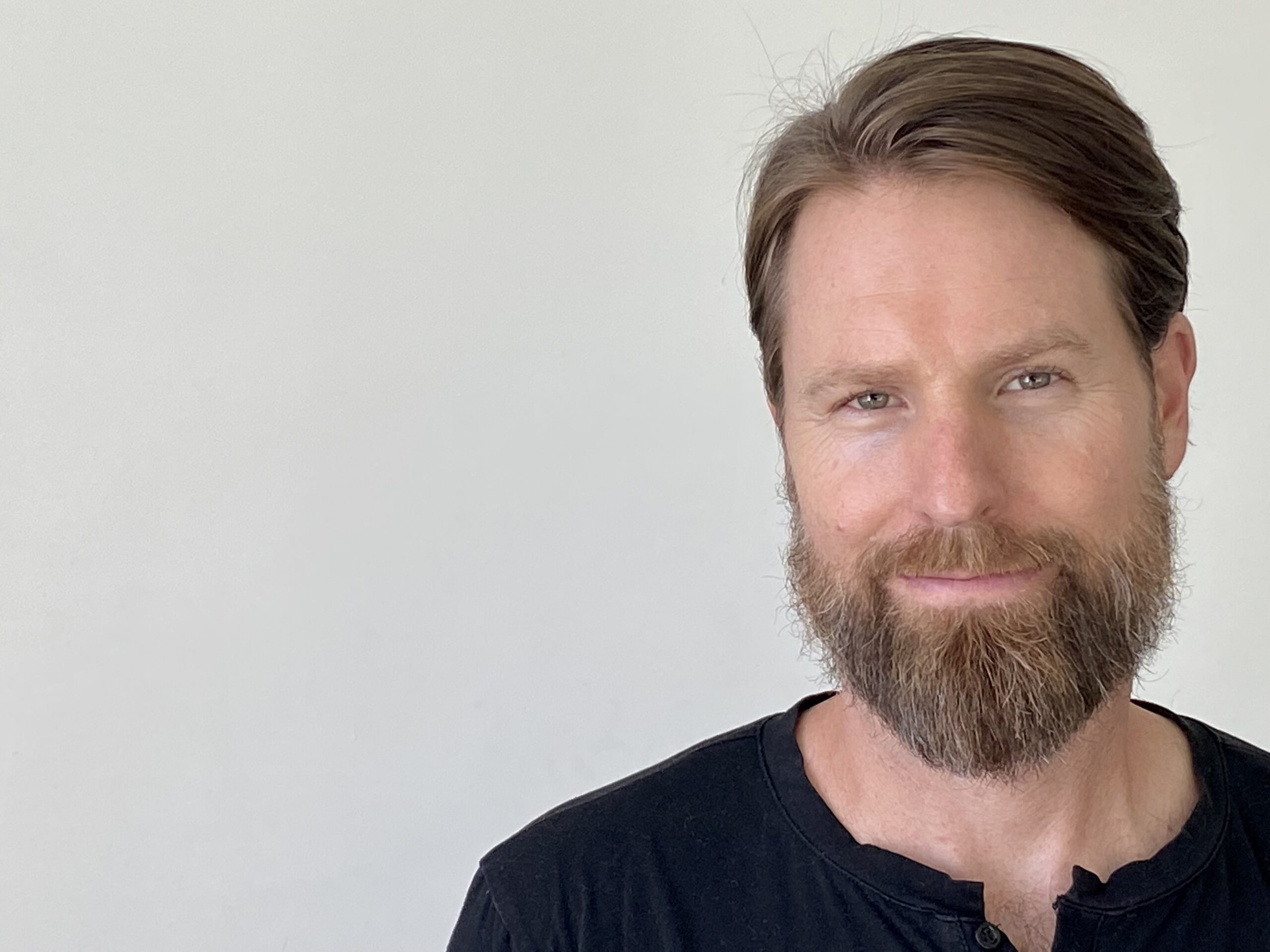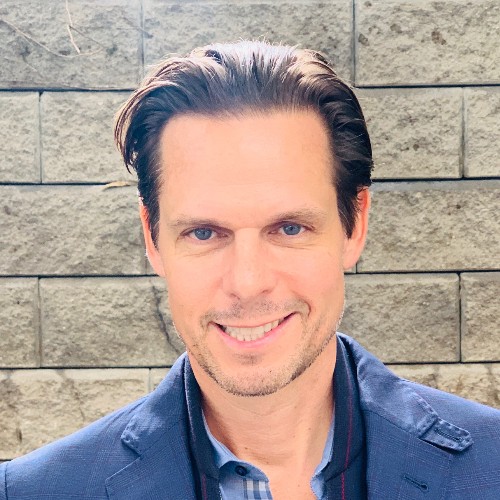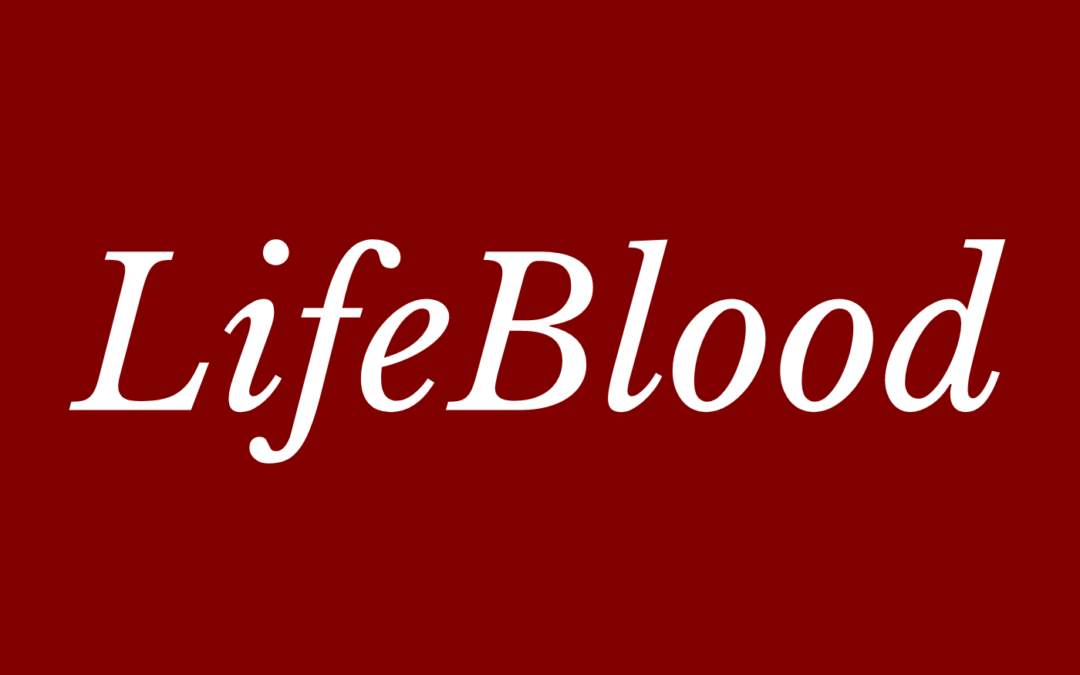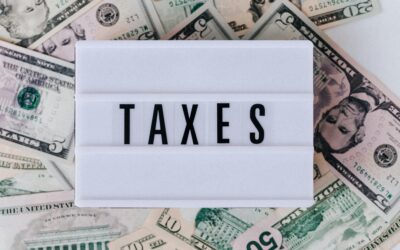The Future of Live Events with Ed Vincent
Love concerts and live events, but hate high fees and charges? Ed Vincent is working to revolutionize the way we pay for and access live events!
Listen to us On
About the Episode
LifeBlood: We talked about the future of live events, the frustration we get when we’re overcharge for tickets, how there will always be a demand for live events, how streaming will accentuate the experience, and how to start saving money on your experiences with Ed Vincent, Tech Founder, Advisor and Founder and CEO of Festival Pass.
Listen to learn what the future could hold for live events and EFTs.
You can learn more about Ed at FestivalPass.com, Twitter, Facebook, Instagram and LinkedIn.
Thanks, as always for listening! If you got some value and enjoyed the show, please leave us a review wherever you listen and subscribe as well.
You can learn more about us at MoneyAlignmentAcademy.com, Twitter, LinkedIn, Instagram, Pinterest, YouTube and Facebook or you’d like to be a guest on the show, contact George at Contact@GeorgeGrombacher.com.

George Grombacher
Lifeblood Host

Ed Vincent
Guest
Episode Transcript
Come on.
george grombacher 0:12
strong, powerful Ed Vinson has returned to lifeblood. Welcome back, Ed.
Ed Vincent 0:17
Hey, George, how you doing? Good to be back.
george grombacher 0:18
Doing great is a tech founder and advisor, a data and growth expert and the founder and CEO of festival pass. They are the world’s first festival and live events subscription marketplace providing access to 1000s of experiences around the globe, and refresh their memories. Tell us a little bit personal life’s more about your work and why you do what you do.
Ed Vincent 0:39
Sure, I think the last time on I was on I may have been living in New York City was there over 23 years and moved to Austin, Texas A little over a year ago. Brought the business here. It’s a perfect place for technology and live events. have three kids? A couple of them are here. One of them still back in New York, finishing high school. But uh, yeah, so it’s all good. loving, loving Austin, Texas.
george grombacher 1:04
Nice. Well, congratulations on the move. 23 years in New York. It’s a long time.
Ed Vincent 1:09
Yeah. All downtown. Wow, what’s an adjustment? Yeah.
But ice is great. It’s got a city. And it has a little bit of nature on it.
george grombacher 1:19
All right, beautiful. So we did have this conversation. Right. You know, I guess the beginning of the pandemic, I think, May of 2020. And it was a unique time to be literally launching festival pass at that time. So just catch us up? What’s, uh, what? What’s new in your world? Yeah, well,
Ed Vincent 1:40
there’s, there’s always a silver lining to anything. And I’m sure you may have heard a few pandemic stories about it. Of course, it’s difficult to launch a live events business in the world of nobody going to live events. And I think at that time, everybody felt there was only a couple more months or a couple more months. But in the what was a positive out of it is we’re lucky enough to have some good investors early on, we were able to keep our core team and just build technology and, and really focus on the strategy for what’s on the other side. And I know a lot of people I talked about, you know, early on, you know, are you only pivoting to streaming, you know, what, how else he or live events ever gonna come back. And I’ve always been very steadfast in our opinion that, you know, people need to connect, we will be, we will be returning to the world of live events. And, and we focused and we kept our keep their heads down and kept pushing forward. And all of a sudden, at the, you know, much of this summer, there’s a lot of glimmer of hope. And especially in places like Texas, and Florida and others, live events started to come back. And you know, since since then I’ve been to, you know, ACL with 50,000 people to Formula One, just last week with well over 50,000 people to, you know, small venues, having concerts, to football stadiums opening up, etc. So, live events are back. And I think 2022 is going to be an incredible year. You know, when we look at our business, and we sit here, and we say the fundamentals for business ran have never been this good. You know, we all suspect the US economy will be good, whatever that means, for the next thought, 18 months, two years, we all realize that consumers have about 2 trillion in spending sitting in their pockets ready to be spent, because of things they didn’t spend on during the pandemic. And live events already has a pent up demand, double and triple the size, it was in 2019. So I’m happy we’re sitting where we’re sitting, because there’s, you know, there’s it’s a once in a lifetime opportunity to grow a business when the fundamentals are all on your side.
george grombacher 3:54
Nice. So I appreciate that. So when you were making the decision about how are we going to react to this? How are we going to be moving forward, have a conversation with the investors and you say, Okay, we have decisions that we can make here, we can focus on just doing virtual events and put a lot of time and resources in and or we can focus on improving our technology and improving our offering with the idea in mind that we’re going to get back to live events.
Ed Vincent 4:22
Yes, so more of the latter. Right. And so, you know, we have always had the opinion that Sure, streaming will be part of the future. And I think what’s happened is there are a lot of cool ways streaming will, will be a part of the future. But yeah, so you know, there’s so many things going on and so many people pivoting towards something like that. And it’s good, it’s a good thing, you know, what happens in peaks of circumstance, if you want to call it that in life, things move in one direction and then you know, on the other side it becomes a regular part of life. You know, so in the world of Everybody doesn’t want to do yet another Zoom meeting when they want to watch a concert or sporting event, the the acts, the act of the investment that went into streaming will support live events going forward, there’ll be revenue share for small venues, they’ll be revenue share for artists, all of that never really existed before streaming was all about, you know, somebody spending money to build a big production. And it was more, it was more just a distribution of TV than it was actually streaming a live event.
george grombacher 5:28
Yeah, that’s interesting, I hadn’t really considered the right, it’s a whole new revenue source potentially for for small venues to stream to people that maybe wouldn’t be able to make it there, but can still see their favorite artist or whoever it might be. So I think that that’s pretty cool. So what,
Unknown Speaker 5:45
how do you feel
george grombacher 5:47
like you’re positioned for these next 18 months where they have these trillions of dollars, which are going to be deployed? How is what why is festival past well positioned?
Ed Vincent 5:58
Yeah, so so many reasons, right. So one is the pent up demand and the lack of discretionary spending on entertainment and travel, that’s been kind of the biggest place, people have been saving money over the last 18 months. In addition, the pent up demand is just big, right? So every artist or sports team that hadn’t played it for a year to to an audience, or Broadway theater, which is finally back, or touring Broadway theater, which is you know, starting to go throughout the country, all of these actors, actresses people productions been doing, you know, not nothing they’ve been sitting, wanting to perform for 18 months. So the moment they can guess what they are. So artists that have been sitting writing songs for 18 months, are dying to go perform them in front of an audience. So so as I was mentioning, in 2022, some of the big, you know, call it concert producers, or others have already have on the books, twice as many events as they did in 2019. And consumers are dying to get out and go see it. So the the reality is, is those fundamentals are just great for what we’re doing. Because, you know, it means the market is growing. And then when the market grows, it gives opportunity for us to deliver the product to the consumer in a different way. And that’s been our mission from day one is, you know, in the world of live events and ticketing, it’s been done pretty much the same way for decades, transit, purely transactional, high ticketing fees. No community, people didn’t really care where they got their ticket from, they just wanted to go. So what we’re changing is, you know, a way for people to connect have community have a social frictionless way to be part of something to become a member of something, you know, identify with other individuals that have passion points. And by the way, get to go to over we have over 80,000 live events on the platform today that they can go to, you know, with no ticketing fees. And because they’re willing to subscribe, and commit to getting their tickets through us, they’ll know they’ll always get less than they will anywhere else.
george grombacher 8:06
Nice. But that’s that’s awesome. All right. So I’m super curious how long it took you to identify 80,000 live events?
Ed Vincent 8:15
Well, as you can imagine, it’s it’s not doing single one off deals with each event, right? So we have a lot of ways we go about that. Some are the aggregation of tickets through primary ticketing companies, some are the aggregation through groups of venue owners. Others are the aggregation of some some stuff in the secondary market. So what’s what’s interesting is, you know, the secondary market for years is kind of always got a little bit of a bad rap. They’re like, hey, you know, I know, the broker or individual that bought a ticket, and now they want to sell it, they’re selling it for three times the amount it really originally sold for. That’s a lot of that’s changing. And the reason why a lot of that’s changing is a lot of the primary ticketing companies are working with the artists and the secondary markets, in order to find a way where it’s not about you know, acquire a ticket for 100 and sell it for 500. It’s more about just helping price things in a supply and demand dynamic way. So the one negative of the secondary market traditionally, and I won’t name them, but you probably know some of the big players out there that are multibillion dollar secondary market, ticketing companies is they often charge very, very large fees. You know, one charges almost 65% on top of what they acquire for, you know, every time they sell a ticket to somebody, and that’s tough, like consumers don’t like thinking that paying 100 for a ticket and then paying 150 By the time they check out. So we’re trying to bring transparency back to that letting the consumers know they’ll never pay take any fee with us. And we’ll always find a way to give margin back to the consumer. So we’ve even if one of the tickets that are acquired by one of our members through As faux pas happens to be sourced from a secondary market seller, they’ll always pay less than they would anywhere else, you know, we have a high level, our model is quite simple. It’s will give margin back to the consumer, they when they get it for less, and all they’re doing is committing to subscription revenue or recurring revenue for us. So for us, we might have a slightly lower margin business, but we have more recurring known revenue, so our multiple is higher. So enterprise value for us as good discount, or less, less cost for the consumer is good, as everybody wants.
george grombacher 10:38
Nice. Alright, so I’m somebody who’s listening, and I’m into concerts or love events, I’m interested in starting to go to them, let’s just assume that I want to start doing that 2022. And I hear you say, well, as long as me the consumer is willing to pay a annual subscription or a monthly subscription fee, every event that I go to, I will save money on. Correct? Nice. Well, that’s pretty compelling. So how does it actually work?
Ed Vincent 11:08
Yeah, so you can choose, you can sign up for free, just so you can start exploring the site looking at the looking at events we have, but you can sign up for as little as $19 a month, or up to $99 a month. And at $19, you get a certain amount of credits, $99 a month, you get more credits. So for example, at $99 a month, you get 90 credits a month. So so if you do the math, you’re paying about $1.10 per credit, if you’re signing up for $19 a month, you’re paying about $1.27 A credit. So the idea is the more the more you’re willing to commit to on a monthly basis, the cheaper per credit price It is, therefore you’re going to go to events even cheaper. So what happens is you get your 90 credits, and you go to the site, and you might find a local band at a local venue. And that might be 10 credits, or you might want to go to a professional football game. And that might be 80 credits, or, you know, there’s big festivals that might be a couple 100 credits, because you know, they’re traditionally three $400. But you’re able to use the credits any way you want, you’re able to gamify it, because you might say, Well, hey, I got my 90 credits, but I’m going to look for those events that might not have as big demand, and I can go to 10 events this month, you know, or you can go to one big event, it’s really your choice. And those credits, rollover, they never go away. And the one thing I always say to people is, we also have a discount of hotel rooms on the site. So we have over 600,000 hotel rooms, that people can, you know, just acquire a hotel room night like they were on hotels, calm or anywhere else. And those pay less on our on our platform. And they can use their credits to redeem to get those hotel rooms. So the thing I always say to people is even if you don’t know if you’re going to go to five events this month or not, if you sign up either for an annual plan or a monthly plan, it’s like a savings account, right? You’re just putting money towards the product, you’re acquiring credits. And when you want to use them, you can use them, they won’t go away, and they’ll roll over. And you’re effectively guaranteeing you’re going to get tickets and hotel rooms at a much cheaper rate.
Unknown Speaker 13:19
Nice. Makes sense. So how does community come into it?
Ed Vincent 13:24
Oh, there’s a lot of fun stuff we’re building. So. So in general, being a member of festival pass has certain benefits. We have a whole we’re there’s a lot of stuff that is kind of endeavor is complete, but not really sure that we’ll through, you know, a classic dev lifecycle release. But um, you know, the ability for individuals who are members to connect their social accounts, whether it’s Facebook, or Instagram, or some of their friends and contacts and connect within the platform. So for example, I might see,
pick a pick a band, I might see. Exactly, I must be you must be a jersey guy.
So I might see Bruce Springsteen on the platform, who’s playing at Madison Square Garden, and when I go to that event page, once I’m connected to my friends, I’ll be like, Oh, these 10 other people that I know are already going to this event. I already see the little profile face. I know they’re going so that’s one ability to connect. Others are badges, right? So we have this concept called badges that we’re rolling out that it’s kind of a bad word. I just we used internally, but the word badges because of like gamification stuff that people are used to in video games. But for example, I might I Bruce Springsteen might have a badge on our platform. And I might decide that hey, I’m why I’m a crazy Bruce Springsteen fan. And for an extra five bucks a month, I’m going to buy the Bruce Springsteen badge. And what that means is I get cool things like one I’m part of a community of others that love Bruce Springsteen. I may get access to tickets first, when he releases tickets, I may, you know, I’m just using him as an example. But I may get, he might jump on a you know, once a month Zune call and talk to all the all the people within the community, almost a little bit like a subscription fan club within the community. And that’s one piece, it really goes on a lot of affinity groups, you might be an alumni from University of Texas, and you might choose to have the UT badge and therefore, you might gather at a tailgate party before going to the game. So there’s a lot of interconnected community that happens. And, you know, we also have some, some future desires to use that badge system to minsum NF T’s related to the artist, or they sports figures. So there’s a lot of interesting fun things going on.
george grombacher 15:46
You took the words right out of my mouth, I wanted to ask you about the NF Ts, and I mean, talk about a brave new world, but made almost perfectly for artists and live experiences and on offline experiences and virtual experiences. How do you think about that and try to evaluate what you should pursue?
Ed Vincent 16:05
Sure, so So I think you answered a little bit of it is we’ve always tried to figure out what is the best approach to engage in the blockchain and to our crypto environment, within something that makes sense for our for our company. And, you know, we’ve talked about tokenization of our credits, we’ve talked about, you know, doing you know, different, even Ico or releases from a personal financing perspective, we will likely we did a little bit of crowdfunding, just to get our members engaged to be able to be part of the platform, we talked about the ability to allow that we likely will accept in the near future. In the next few months, I’d say, three to six months accept Bitcoin dodge for people subscription, just so those who want to use that kind of currency can. But I think after a lot of that discussion, I think NF T’s really fit in the world that we’re living, right, because we’re building this platform with artists relations in mind with sports figures with chefs, winemakers, you know anybody that has some kind of entertainment celebrity status, who may have an audience who may want to share some ownership in something they’re doing with their audience. And I do think NF T’s are a really cool way to do that. And it could, it could have a double double value, right? And FTS can not only have future transactional upside from the actual custody and ownership of the NFT, but used within our platform, then NF T might also come a certain benefits.
Unknown Speaker 17:40
Exciting.
george grombacher 17:42
Are you fascinated by all this? Or you’re a data and growth expert? Is it? Is this new tech just fascinating? Or is it how how do you think about it in general?
Ed Vincent 17:53
Yeah, I love it. I’ve been kind of following the blockchain space. For a while, I’ve always felt the blockchain technology itself would be far bigger than the concept of crypto. And I still believe that. But what I find interesting is there’s you know, everybody talks about defy or, you know, the the, there’s even now played a win in gaming that is almost like an extension of defy in gaming. So it’s almost like gamify, but not the traditional gamify we talk about. So the point is I’m very fascinated by where it can go. And I love that there’s other financial instruments that can be created, that aren’t solely a coin that actually have some other kind of, you know, aspect related to culture and arts and entertainment to it. Love it. Exciting times,
Ed. Well, I’m
george grombacher 18:51
glad you came back on. And I’m excited for just to be able to get outside and get to concerts and live events personally. And I know that a lot of other people are as well. And I’m excited to see what the future holds for you. And festival pass. So appreciate it. How can people connect with you give us the website and how the best ways to get in touch?
Ed Vincent 19:16
Absolutely. So the website itself is the best festival pass calm, go sign up, get a free account. Even if you’re not ready to engage. See what we got. If you’re already engaged, join, join a program you’re always going to be saving all of our social accounts. We’re on Instagram, it’s festival underscore pass Facebook, we’ve begun to engage on Tik Tok but I think it needs a little more work. So if you want to follow us be patient. But I think we provide some good content on on Instagram and Facebook. Personally, you know if it’s on the business side, I’m on LinkedIn easy to find me I’d been sent on LinkedIn. But other than that, we’re just excited to move forward and see a lot future growth in 2020 to
george grombacher 20:02
look forward to it. Well if you enjoyed this much as I did show, add your appreciation and share today’s show with a friend who also appreciates good ideas go to festival pass calm and get involved at least sign up for the free membership check out the site. You can find them on Instagram and Facebook, eventually Tik Tok and a fine ad on LinkedIn as well. Thanks gonna.
Ed Vincent 20:23
Awesome. Thanks so much.
george grombacher 20:24
And until next time, keep fighting the good fight. We’re all in this together.
Transcribed by https://otter.ai
More Episodes
Why Investors Choose Annuities for Secure Retirement Income
Planning for retirement is one of the most critical financial decisions a person will make. With concerns about market volatility, longevity, and sustainable income, many investors turn to annuities as a solution for secure retirement income. But what makes annuities...
Using Annuities to Create Tax-Efficient Income in Retirement
One of the biggest challenges in retirement planning is managing taxes effectively. Many retirees focus on accumulating wealth but overlook the impact of taxes on their income. Without a well-structured strategy, taxes can eat into your retirement savings and reduce...
How to Overcome the Fear of Running Out of Money in Retirement with an Annuity
One of the most common fears among retirees is running out of money. After working for decades, the last thing anyone wants is financial insecurity during their golden years. The fear of outliving your savings can be paralyzing, leading to stress and uncertainty....
The Power of Minimalist Money Habits: Simplifying Your Finances for Greater Freedom
In today's fast-paced world, it’s easy to get overwhelmed by the complexity of managing finances. We’re bombarded with credit card offers, investment options, and various spending temptations, all promising to help us live better lives. Yet, in the midst of it all,...
The Right Questions to Ask Yourself When Considering an Annuity for Retirement Income Planning
Annuities can be a powerful tool for creating reliable retirement income, but they’re not a one-size-fits-all solution. Before purchasing an annuity, it’s essential to evaluate whether it aligns with your financial needs, goals, and risk tolerance. Asking the right...
How to Guarantee You’ll Never Run Out of Money in Retirement
One of the biggest fears retirees face is outliving their savings. With rising life expectancy, unpredictable markets, and increasing healthcare costs, ensuring that your money lasts a lifetime is a top priority. Fortunately, there are strategies you can implement to...
How Taxes Can Reduce Your Income in Retirement
When planning for retirement, it's easy (and prudent) to focus solely on saving enough money or making wise investment choices. However, one crucial factor that is often overlooked in retirement income planning is taxes. While many retirees expect to pay less in taxes...
The Benefits of Stock Dividends for Retirement Income Planning
As we approach retirement, one of our primary goals is to ensure a reliable income stream to sustain our lifestyle. While there are several options available for generating retirement income, many retirees are increasingly turning to stock dividends as a key component...
The Value of Fixed Annuities in Retirement Income Planning
As retirement approaches, people find themselves grappling with the challenge of ensuring a reliable income stream during their golden years. One popular solution to this problem is the fixed annuity, a financial product that offers a guaranteed income for life or a...
Join the show.
Interested in being on the show? Tell me a little bit more about you and what you’d like to talk about!














